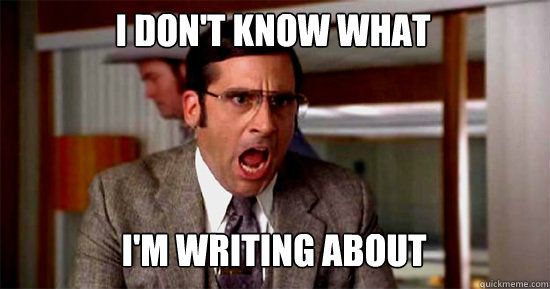1.17: What is Reflective Thinking?
- Page ID
- 58226
- Understand the connection between reflection and learning
Reflecting on Learning
According to the old saying from Confucius, “To know what you know and what you do not know, that is true knowledge.” Reflection is an act that helps you better determine your own true knowledge about something. For many students, acknowledging their limitations or what they don’t understand about certain material can be key to real learning. Without such practices, we may be faking our way through learning, which isn’t really learning at all. Inversely, we should strive to better and honestly understand our strengths, as well as our growth and progress. You have probably had friends who are good at a particular school subject, and when they are asked how they know so much about it or how they do so well at it, they say something like “It’s just easy for me” or “I’ve always been good at it.” But those answers oversimplify what learning is. If those students reflected on the question more, they might find interesting answers that help them more deeply consider themselves as learners. Writing can help us do that kind of deeper reflection.

While reflection certainly is a mental act, many people write to help make sense of their thoughts. And writing about your own writing is a deeply metacognitive practice that can help you more broadly as a learner.
Many people may view reflection as thinking about an event that has happened, but that is only part of it. Reflection can be about something that happened in the past, is happening now, or will/might happen in the future. For example, as a college student, you might reflect on a math test you took last month, how your current homework assignment is puzzling you, and how a math class might impact you next semester. It is important to see reflection as a continuing process because it is a valuable part of learning and growing in all disciplines and in all aspects of life.
Thinking about your own writing and being aware of your own strengths and weaknesses as a writer can help you improve. See if you can guess at the following types of knowledge types you may review while reflecting.
https://lumenlearning.h5p.com/content/1290965000592956998/embed
Reflecting Across the Disciplines
If reflection seems like an act unique to your writing class, think about other courses and majors and how we see instances of reflection. Consider health fields and professions. Early in their educations, future nurses, doctors, and other health professionals are taught the importance of reflection in their work. People such as nurses and doctors regularly reflect on the condition of their patients, the care they provide, potential treatments, and future care. Writing allows health care professionals, for example, to keep a reflective log of patients (think about why nurses and doctors rely on those charts and patient records so much). This type of thinking requires practice, which is why reflection is part of the courses these students take. For most people, it is not enough to just reflect in the mind.
Contributors and Attributions
- What is Reflective Thinking?. Authored by: Guy Krueger. Provided by: University of Mississippi. License: CC BY-SA: Attribution-ShareAlike
- Reflection as a Continuum. Authored by: Guy Krueger. Provided by: University of Mississippi. License: CC BY-SA: Attribution-ShareAlike
- Process of Reflective Writing. Authored by: Karen Forgette. Provided by: University of Mississippi. License: CC BY-SA: Attribution-ShareAlike
- Reflective Writing. Provided by: SkillsTeamHullUni. Located at: https://www.youtube.com/watch?v=QoI67VeE3ds&feature=emb_logo. License: Other. License Terms: Standard YouTube License
- Meme: I don't know what I'm writing about. License: All Rights Reserved. License Terms: Fair Use


